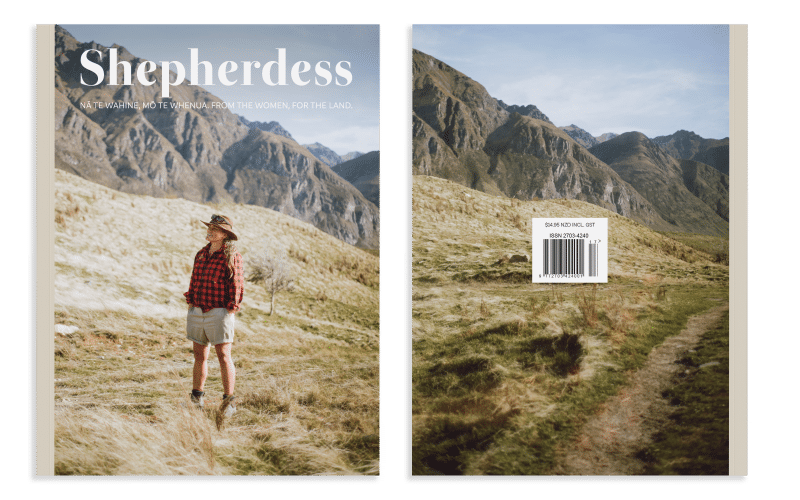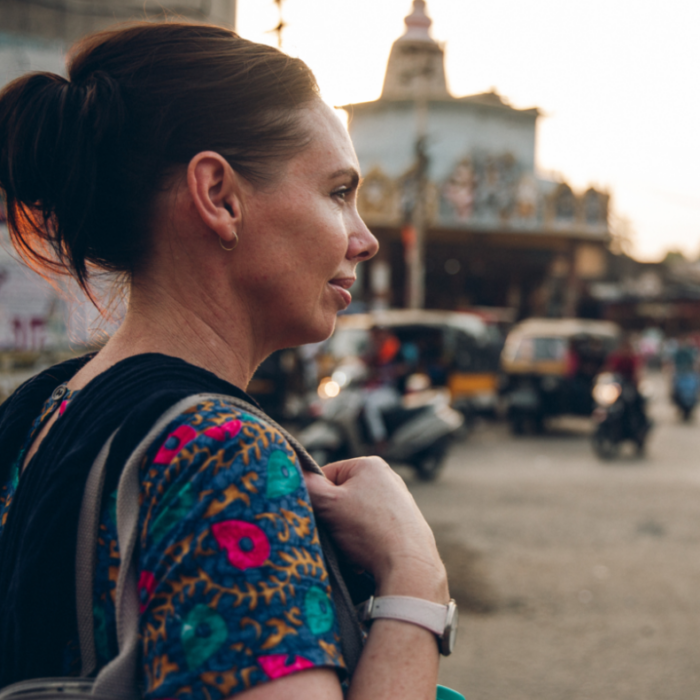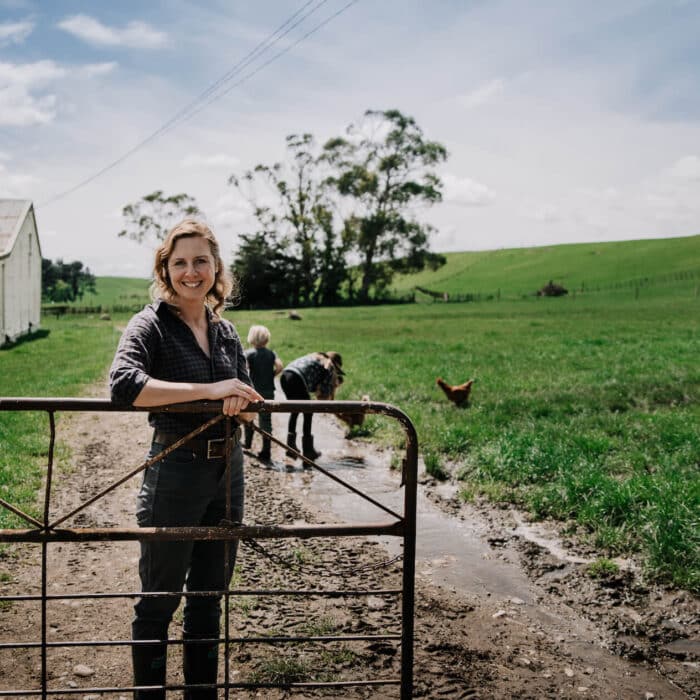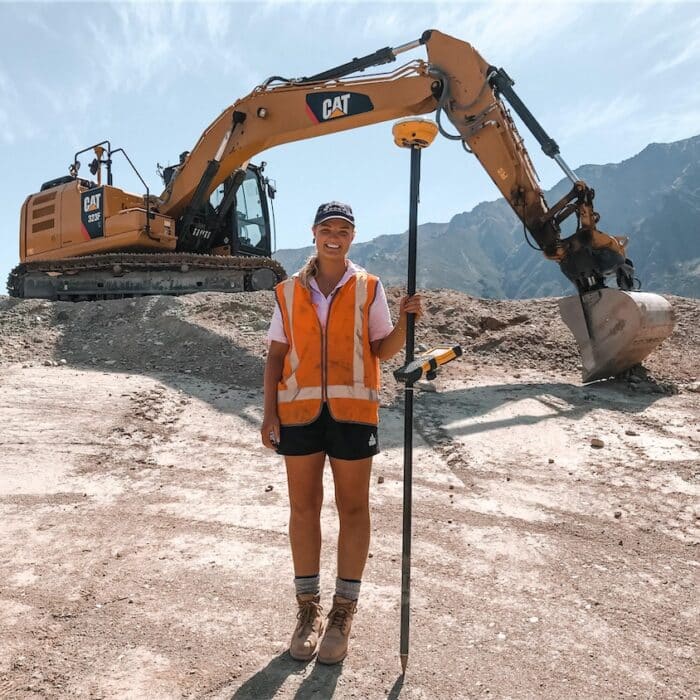
Where is home for you? I grew up on a dairy farm south of Nelson in a small town called Murchison. I went to boarding school in Canterbury and did half my studies there, then after the earthquakes, I moved up to Palmerston North to finish university. I'd always planned to go back to Nelson to run my family farm as well as practice psychology, but when I met my partner, Angus, who's a sixth-generation sheep and beef farmer on his family farm near Feilding, I chose to stay. We moved onto the farm two years ago and built a home here.
What got you interested in psychology? When I was young, there were people around me who were struggling with their mental health. Even in my own family there were those who were struck with anxiety and depression, and the isolation of living rurally made it worse. There wasn't really anywhere you could go or anything you could do about it. After my parents split up when I was ten, I saw a counsellor for childhood depression. It made such a difference to me. I was eternally grateful and wanted to pay it forward, so that really ignited my interest in psychology.
How did you start practicing? I've worked in Whanganui in Community Mental Health and Addictions Services for the past three years and at Palmerston North Hospital the year before, during my internship. As a clinical psychologist, I provided specialist services like assessments, diagnoses and therapy. When I'm working with people, I look at what has happened in someone's life and what is happening in their environment, and then I help them to find healthy ways to think and feel about the world around them. I always knew that I wanted to work in rural mental health, so I recently set up my own practice, Second Nature Psychology, in Feilding, to be closer to the rural folk I want to be able to support.
How do you connect with rural people? In-person therapy is still my main method of delivery, but I also offer telehealth, which utilises video calling. If my clients are out of town, it's more convenient. I often do a mix of telehealth and in-person appointments, which means that continuity can be maintained. Access is a huge part of getting care, so having the option of telehealth is a huge advantage. I'm always asking myself: How can I offer my skills in the right way to reach the people that need help? Another tool I have to connect with people is my border collie, Zoe. She has two years of experience working with me as a therapy assistant and comes to work around three days a week. She's naturally intuitive and great with people; clients love having her in the room. And when she's not at work with me, Zoe helps out on our 160 hectare farm on the Rangitīkei River.
What are some of the main issues farmers are faced with? Uncertainly is a huge one. So much of rural life is uncertain. It's dependant on the weather, the environment, government regulations, market prices and so many other things - none of which are in the farmer's control. Isolation can also be a factor. The technology we have today helps, but sometimes I wonder if that means farmers actually get off the farm less, that there's even less in-person connection. My partner, for example, is well-connected on social media, yet he often goes for more than two weeks without leaving the farm for non-farming related reasons. I always encourage him to go hunting or catch up with his mates.
Why do you think people are reluctant to reach out for help? I think one of the reasons that folk don't come is because it's a cost, and also they can be very pressed for time. But our mental health has a direct impact on our productivity, which has a direct impact on our financial bottom line. No one hesitates to take the truck in for a Warrant of Fitness because we can't afford for it to break down. Addressing our mental health is no different. For a farmer, they are their biggest asset in a farming business, so I think of it as investing in their overall health as well as the productivity of their business. There's still a lot of stigma around mental health. A lot of people feel uncomfortable with it, which means they just don't talk about it. I often hear things like, "It feels weird to ask my mates if they're doing okay," or, "I wouldn't know what to say if they told me they were struggling." And one thing I always say to them is, "You don't need to know what to say - you just need to be able to listen and hold the space for them."
What does an average week look like for you? I loved working at the hospital, but I needed more flexibility. I couldn't sustain a forty-hour work week, travel to and from work, and also help out on the farm. Now, I come to the office, I see my clients and I get home with plenty of time to chuck my boots on and head out to jump into stock work, drenching or whatever I'm needed for on the farm. I've always loved physical labour, especially when my job is so much in my head. What I've got now is a great balance. I love that I can go to work wearing makeup and nice clothes and by dinnertime I'm covered in mud…and all the rest!
Related Stories

Out Now
Seventeenth Edition
Our beautiful Ngahuru Autumn 2024 Edition is out now!



